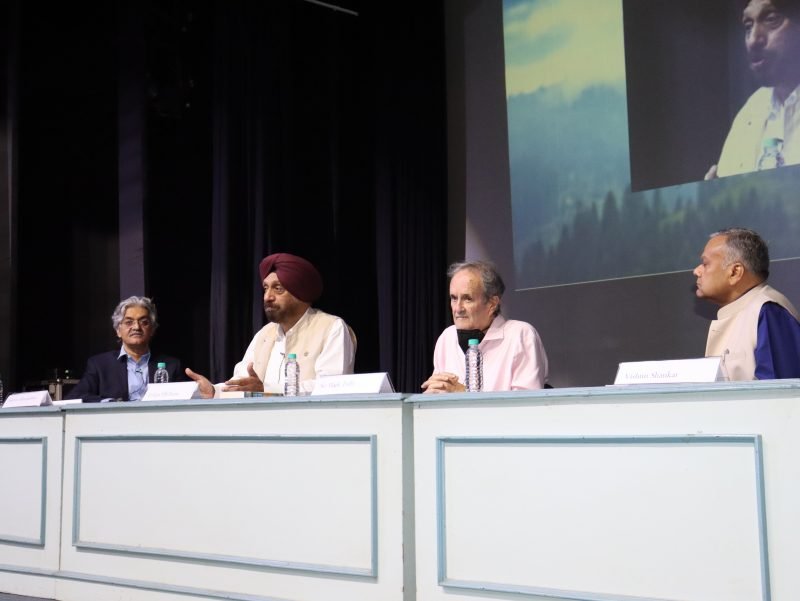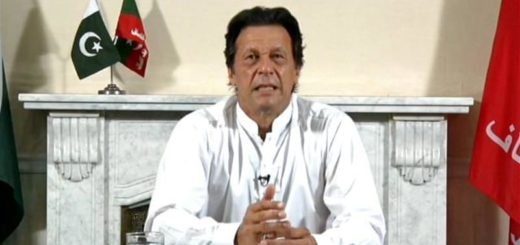Diplomacy and statecraft: 1971 — The war which shaped the subcontinent [Event]

This year marks the 50th anniversary of the war between India and Bangladesh. A delightful and informative two-day event on military history and strategy, focusing on the 1971 war, was conducted at United Service Institution of India (USI), a national security and defence services think tank based in New Delhi, India on October 9th and 10th, 2021. The festival was a part of several literature and arts festivals that Valley of Words (VoW), a literary organization based in Dehradun, conducts annually. This episode on military history and strategy was first among many theme-centric festivals that VoW is going to pull off in the coming weeks. It brought together army veterans of India and Bangladesh, diplomats and authors to the table, to provide a hindsight view of the 1971 war.
Here are the excerpts from the session titled Diplomacy and statecraft”
1. India’s Global Image and Responses
“1971 was a very momentous year” underlined Alok Bansal, one of the panelists at the session titled “India’s global image and responses”. He dealt with the question of what made 1971 a momentous year. Alok Bansal gave some pointers: Pakistan was dangling with the USA, the leader of the western camp during the cold war and China, an ideological companion of Soviet Russia, India started with its initiative of public diplomacy and so on. In the session, the panelists reflected on the international environment during the 1971 war and the outreach made by India to garner international support for its war efforts in East Pakistan (present-day Bangladesh).
Yet the diplomatic effort to gain supporters was limited to smaller powers as Ambassador Akbaruddin outlined. He outlined the international environment under which India went on to appeal to the great powers for support in its initiative against Pakistan. “The Cold War was raging. The great power competition was in vogue. International law was focused on state sovereignty rather than these notions of responsibility to protect etc. were not there as part of the lexicon at that stage. Human rights were not part of the discourse” said Ambassador Akbaruddin.
According to him, during the 1971 war, Indian military efforts were scuttled by both the US and China. In fact, it was the first time when the US and China were in camaraderie to oppose the war efforts of India. To this end, Amb. Akbaruddin highlighted how the Chinese first veto in the UNSC was against recognising the independence of Bangladesh.
He pointed out that India’s efforts were criticized by almost every great power. He also pointed out that India being a non-aligned nation provided it with greater flexibility during the great power competition of the Cold War.
Yet the non-aligned nations didn’t come out and support India’s efforts. This was because the zeitgeist of non-aligned nations was sovereignty, new states and non-interference. Therefore, India, alone in its liberation effort of East Pakistan, had to garner the support of the other side of the Cold War camp, which it found in Soviet Russia.
He pointed out the reticence of European countries in accepting the refugees in the aftermath of the 1971 war. European countries outrightly denied any refugees within its borders and asked India to handle it. Amb. Akbaruddin said that this is because “nations act in terms of their interests”. And European countries were acting in their own interest.
Probal Dasgupta provided the antecedents of the 1971 war in a global context. Anti-war activism and humanitarian crises in the aftermath of the Vietnam war brought humanitarian issues to the fore. In this sense, his position was somewhat contrary to what Ambassador Akbaruddin underlined.
In this backdrop, he said that a number of small countries like Palestine, Israel and East Germany and West Germany, which he called “strange bedfellows”, supported Indian efforts in East Pakistan.
Although, strangely, he made the connection of Pakistani army oppression of Bangladeshis to the Muslim ummah. For him, this was an effort to fulfil the geographical and political extent of the Muslim ummah. This, he said, was done with the support of the Arab League.
On whether China was lurking behind during the 1971 war, Dasgupta said that China had been war-ravaged with the defeat in 1967 by the hands of India and the invasion of Chinese territory in the Battle of Ussuri of 1969 by Soviet Russia. Along with that, the domestic upheaval was also dominant, with the purging of party members by Mao Zedong. Therefore, Mao was not interested in the 1971 war. Rather, he was busy keeping his own house in order.
Watch the full video on YouTube: Diplomacy and Statecraft: India’s Global Image and Responses – Valley of Words 2021
2. Perceptions, Information & Media
The session moderated by Lt Gen PJS Pannu invited Sir Mark Tully (BBC India Head since 1964), Subroto Chattopadhyay and Vishnu Shankar (Editor, TV9 Network). The panel presented the personal experience of perceptions, information, media operations and the importance of credibility in presenting news. Starting off the session, Lt Gen PJS Pannu emphasized the importance of media and how media began the next big thing in war. He mentioned that with the coming of the media, war became a war of perceptions. Subroto Chattopadhyay began by showing his appreciation for the Indian military personnel and highlighted the need of sharing stories of their achievements from the war. The next speaker Vishnu Shankar spoke of how the 26/11 incident changed the workings of media, how media became more responsible as it shaped the perceptions of people. Sharing encounters from his reporting days in BBC, Sir Mark Tully said, “BBC strikes for balance in presenting news always”. Watch the full video on YouTube: Diplomacy and Statecraft: Perceptions, Information and Media Operations – Valley of Words 2021


















